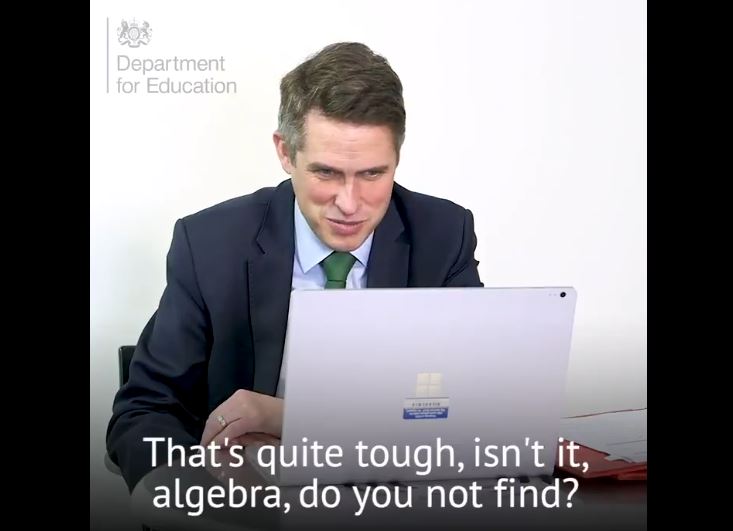Pupils from better-off families are set to benefit most from the £700 million pound catch-up programme announced by the government.
Education secretary Gavin Williamson laid out details of the fund at today’s (Tuesday) Downing Street briefing and stated that no pupil’s prospects should be “blighted by the pandemic”.
Williamson confirmed that all schools in England will reopen on March 8 and said they will also have the option to run summer classes for the pupils who need them most.
“We’re going to make sure we do everything we can do to make sure children reach their potential – while looking at all issues – and we’re not going to be timid in aspirations for them and the actions we need to take,” said Williamson.
Head teachers and think tanks questioned whether summer schools and extra teaching will help the children who have fallen behind the most during the pandemic
The Education Endowment Fund (EEF) – established in 2011 by the Sutton Trust to “break the link between family income and educational achievement” – said that attendance is one of the biggest barriers to success of summer schools.
Whole generation of pupils may be educationally scarred by the pandemic
Exeter University’s professor of social mobility, Lee Elliot Major said: “The key challenge for summer schools is getting the right pupils who need the most help to attend. The most effective models combine academic sessions with enrichment, including sport and arts activities. Schools are only as good as the quality of teachers delivering them.”
Major, who is also a former head of the Sutton Trust, told BBC Radio 4’s Today programme that “we need a hugely ambitious drive over the next decade to equalise and level the playing field in education” because research shows a whole generation could be “educationally scarred by this pandemic.”
He said huge inequalities existed before the pandemic hit and added that this period presents an opportunity to help all pupils, regardless of backgrounds.
The Times states that of the £700 million announced by the government for the catch-up programme, £400 million is new, and £200 million will pay for extra face-to-face teaching in summer schools for secondary pupils.
Funding will also be provided for an expansion of the national tutoring programme – which makes “high-quality tutoring available to schools to help disadvantaged pupils whose education has been affected by school closures.”
The Commons education committee was told yesterday that only 125,000 pupils have so far signed up for the scheme, representing half of the target number.
Head teacher ‘cannot see pupils who need it most, actually attending’
Teachers are sceptical of how effective summer schools will be with Sam Strickland, a head teacher in Northampton, quoted in the Times saying: “Yes we will do them if we have to but I’m genuinely yet to see one have any impact, attract the right children or offer value for money.
“The pupils most likely to be behind [academically] are those most likely to have avoided engaging with remote learning, are school refusers, or aren’t engaged anyway. I cannot see those pupils, who need it most, actually attending.”
Strickland said the money would be better spent on school staffing to reduce class sizes, supporting pupils financially to attend extra-curricular/external clubs and activities “that they actually want to attend and staff training to ensure quality first teaching.”
Are children worth more than 43p per day? asks MP at PMQs
Labour’s shadow education secretary Kate Green is also sceptical about how summer schools will reach the children who need them most, while at Prime Minister’s Questions, Labour’s Wes Streeting asked Boris Johnson about the levels of funding.
The MP for Ilford North and shadow minister for schools, asked: “Does the PM really believe that 43p per pupil per day announced today really cuts it?”
Johnson replied that “even before the pandemic” school funding was being increased and that the government is making “massive investment” in education.




